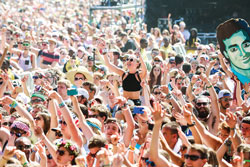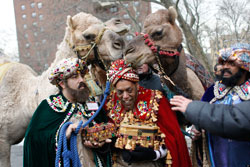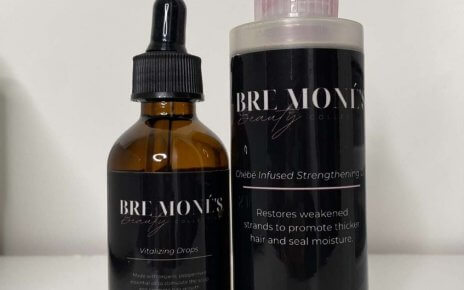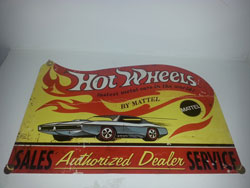Woodstock, Coachella, Firefly, Bonnaroo, Warped Tour, Governor’s Ball…the list goes on and on. Music festivals have always played a major role in the lives of many Americans, particularly the younger generations, but it seems that just as the culture has changed with the times, the meaning behind these melodic celebrations has also undergone some alterations.
“Music festivals have certainly evolved since I first remember them from the 1960s,” said Stuart Rosenberg, an Associate Professor of the Management and Decision Sciences who also teaches a class on the history of rock and roll.
“People think of the 1960s as the Woodstock generation, and the one music festival that helped commercialize the explosion of festivals to come in later decades was the Woodstock festival in the summer 1969,” he continued.
The Woodstock Music and Art Fair, referred to as “three days of peace and music,” was held in August of 1969 in White Lake, NY and is probably one of the most notorious music festivals in history.
Rosenberg explained how Woodstock was the first really big event that basically began the huge popularity of music festivals and made them a marketing tool.
“Music promoters could see the big business that these festivals could generate, and from the 1970s through today there are several festivals each year across the world that attract music fans of all genres,” he said.
Little do many people know, there were several major music festivals that took place before Woodstock that also contributed to shaping the whole idea behind these concerts.
One of these is the Newport Folk Festival, which was established in 1959 and is still held today in Newport, RI. The first Newport Folk Festival is most noteworthy for being the place where folk icon Bob Dylan “went electric.”
Two years later, there was another music festival that is known for creating the format of Woodstock. Rosenberg recalls, “Perhaps the first significant outdoor rock festival was the Monterey Pop festival in 1967, which featured the Who, Jefferson Airplane, the Grateful Dead, the Mamas and the Papas, Janis Joplin, among others, including Jimi Hendrix and Otis Redding, who truly became pop icons as a result of their being there.”
This festival was held in Monterey, CA and mainly focused on the counterculture at the time by showcasing the importance of rock and roll to that generation of young people.
Liam Frank, a junior music industry student, said, “Music festivals in the past used to be bastions of grand unification and understanding. They were places to make peaceful political statements and to love one another.”
Music festivals today may not have quite the same meaning as they used to. These festivals are a huge business opportunity where many vendors go to advertise.
“Music festivals today are more about advertising and capitalizing on marketing opportunities and selling over priced tickets,” said Frank.
This begs the question: has the strong unity of the music lovers who once attended these kinds of festivals been lost?
Some of today’s major music festivals include Coachella Valley Music and Arts Festival in California, Firefly Music Festival in Delaware, and even Vans Warped Tour, which travels around the country. There are also a ton of music festivals for many different genres of music, even ones with religious undertones like the Creation Festival in Pennsylvania.
The popularity of music festivals seems to increase every year as the bands and the overall experience get bigger. Caitie Bitetto, a junior communication student, believes, “Music Festivals are one of the best ways to experience music. From going to see your favorite bands to discovering new bands and musicians, every moment is awesome.”
Bitetto attended Firefly Music Festival in 2014 and her favorite memory was being able to see her favorite band, The Foo Fighters, perform live. She is even more excited to attend the festival again this summer in June.
Although Frank makes a valid point by saying, “Past music festivals were more about music than today’s are,” Bitetto, another great music lover, sees the opportunity to experience music in such an exciting way. “You also get the opportunity to meet new people who are great and have the same music taste as you whom you would have never encountered otherwise,” she explained.
Although it may be true that many music festivals today put a lot of money into marketing and selling every attendee everything they have, music lovers can still go to these events and feel the similar kind of connection while listening to great music just like their parents did at Woodstock.
IMAGE TAKEN from fireflyfestival.com




